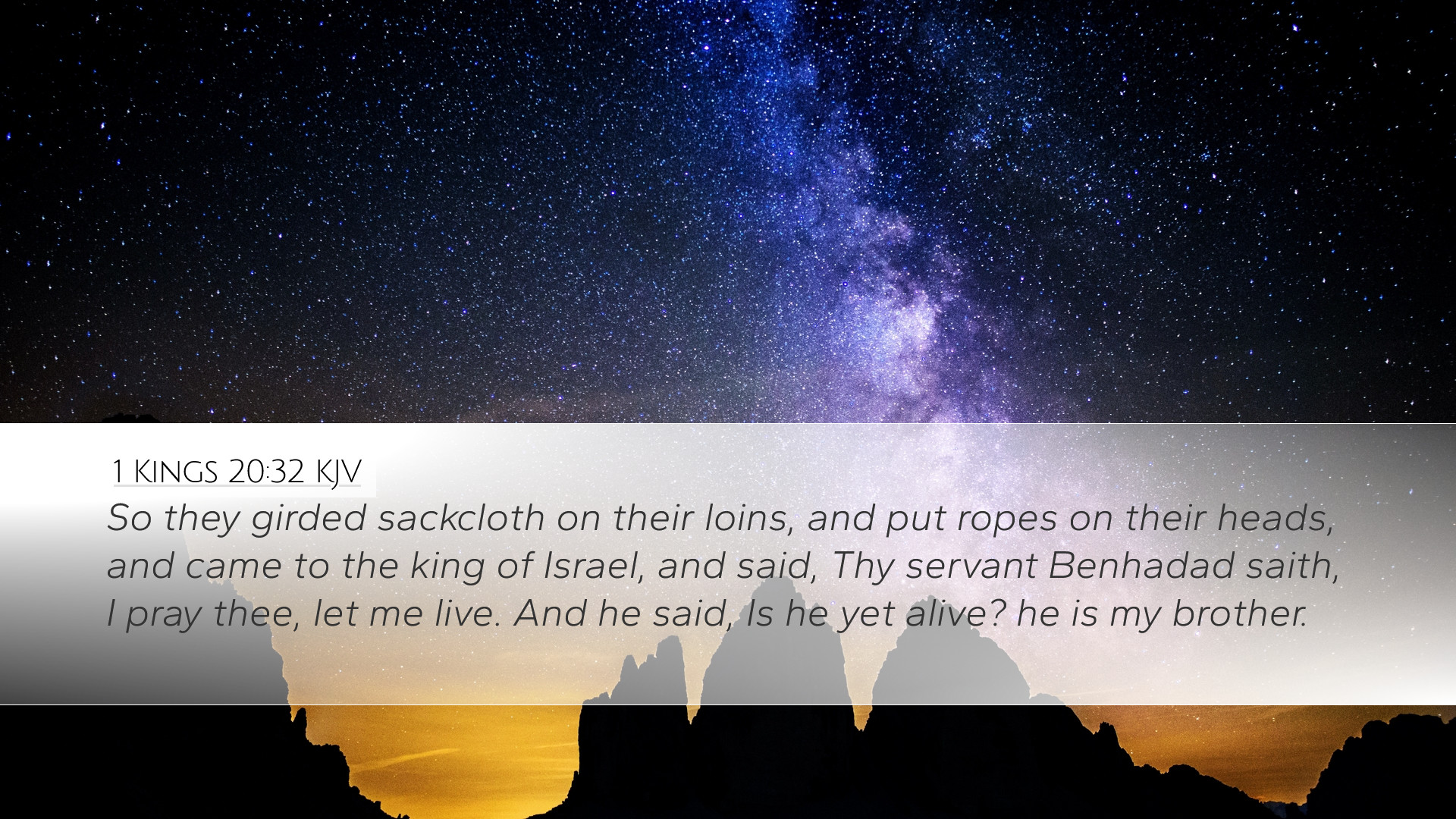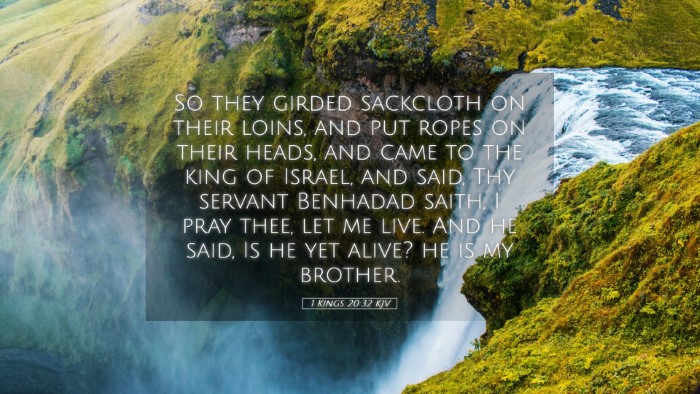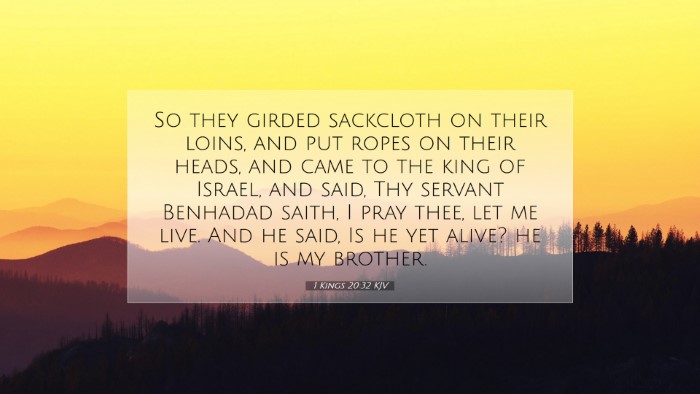Commentary on 1 Kings 20:32
Verse (1 Kings 20:32): "So they girded sackcloth on their loins, and put ropes on their heads, and came to the king of Israel, and said, Thy servant Ben-hadad saith, I pray thee, let me live. And he said, Is he yet alive? he is my brother."
Introduction
This verse presents a pivotal moment in the narrative of King Ahab of Israel and King Ben-hadad of Syria. The actions of Ben-hadad's servants demonstrate a profound cultural expression of humility and desperation, as they seek mercy from Ahab after a series of military confrontations.
Historical Context
The backdrop of this passage is a series of conflicts between Israel and Syria during Ahab's reign. The Assyrian records and biblical history depict Ahab as a contentious character, often engaging in battles that highlight the complex relations between Israel and neighboring nations.
The Servants' Actions
The act of girding themselves with sackcloth and placing ropes on their heads is highly symbolic. Sackcloth represents mourning and humility, while the ropes signify submission and a plea for mercy. This cultural practice is echoed throughout scripture, marking a state of desperation. In light of this, the servants' posture before Ahab signifies both a recognition of their imminent peril and an acknowledgment of Ahab's authority.
Insights from Matthew Henry
Matthew Henry emphasizes the humility portrayed by Ben-hadad’s servants. He suggests that their appeal serves as a reminder of the seriousness of their situation, referencing the importance of seeking mercy from those in authority. Henry notes, “In their approaching to the king in such a posture, they did not insist on their rights but acknowledged their misery, which is essential in true repentance.”
Insights from Albert Barnes
Albert Barnes observes that this request by Ben-hadad's servants indicates a shift from aggression to a defensive state. He comments on the irony that the king, who was initially bent on destruction, now finds himself in a position of power over those who had threatened him. Barnes elaborates, stating, “This situation exemplifies a moment when pride is stripped away, allowing for potential reconciliation and mercy.”
Insights from Adam Clarke
Adam Clarke highlights the elements of interpersonal dynamics in this episode. He points out that Ben-hadad’s extreme measures suggest a level of desperation not typical for a king. Clarke notes, “The act of sending his servants to Ahab in such a humble manner implies that Ben-hadad understood his powerless state and the precarious nature of his situation.”
Theological Implications
This verse and its context provoke critical theological considerations regarding authority, mercy, and repentance. It offers a glimpse into God's sovereignty, even amid disputes. Ahab's response—“he is my brother”—can be seen as an opportunity for grace, highlighting the potential for forgiveness even when one has been wronged.
Application for Pastors and theologians
For pastors and theologians, this passage serves as a reminder of the importance of humility in seeking reconciliation. It underlines the necessity of acting with compassion, as Ahab does by considering Ben-hadad's plea for mercy. This perspective encourages ministers to foster relationships within strained communities, guiding their congregations towards forgiveness.
Application for Students of the Bible
Bible students can draw lessons on cultural expressions of humility and the complexity of human relationships. Understanding the significance of sackcloth and ropes enhances their comprehension of biblical narratives that involve mercy and repentance, which are recurrent themes throughout scripture.
Conclusion
1 Kings 20:32 encapsulates a moment rich with emotional and spiritual implications. The attitudes and actions of Ben-hadad’s servants underline the significance of humility and recognition of one's state before authority. As discussions of mercy and authority are unpacked through the insights of Henry, Barnes, and Clarke, contemporary readers are encouraged to reflect on their own lives and the relationships they navigate.


